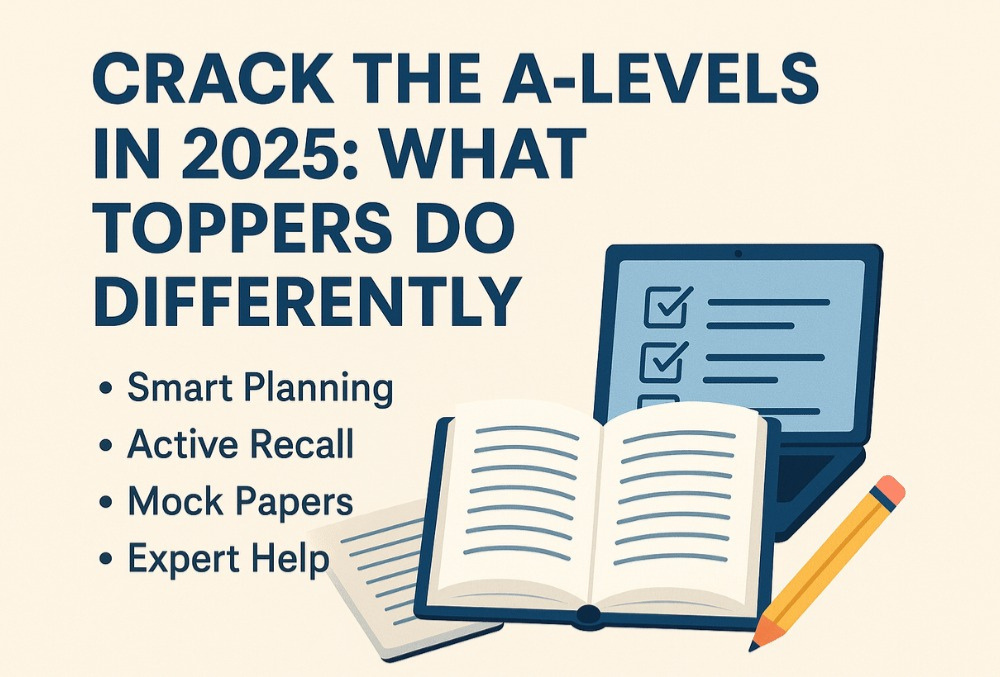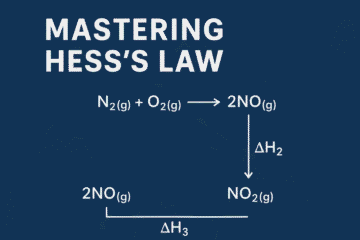A-Level exams continue to be the defining academic challenge for students across the UK and international curricula. With increasing pressure from university entry requirements and limited seats in top programs, the competition in 2025 is higher than ever. But while thousands of students struggle with where to begin or how to revise effectively, a select group of top performers consistently secure A* grades.
So what exactly do these students do differently?
In this in-depth blog, we’ll explore what distinguishes high achievers from average students — their mindset, techniques, and study systems. Whether you’re aiming for medicine, engineering, or law, or simply want to improve your grades, this guide reveals the habits and strategies that define A-Level success in 2025.
1. They Start Early with a Purpose-Driven Study Plan
High-achieving A-Level students don’t leave things to chance or rely on last-minute cramming. One major difference is that they begin their revision months in advance often by October or November. But it’s not just about an early start — it’s about strategic planning.
Toppers often use backwards planning, starting from the 2025 A-Level exam window (expected to run from mid-May to late June) and building their schedules in reverse. This technique ensures:
Clear weekly study targets
Built-in time for review and mock exams
Reduced last-minute panic
Study planning tools like Notion or even simple Google Sheets allow students to track chapters, topics, weak areas, and revision frequency — building a roadmap toward success.
2. They Master the Syllabus, Not Just the Textbooks
Many students believe reading their textbooks or attending classes is enough. Toppers know better. They treat the syllabus like a blueprint and break it down topic by topic. For each subject, they analyze key verbs like “explain,” “evaluate,” or “justify” and practice writing responses accordingly.
For example, in A-Level Chemistry, understanding just definitions won’t get you full marks. You need to practice structured application of knowledge, especially for calculations, mechanisms, and data interpretation. This is where personalized help from an A level chemistry tutor proves incredibly valuable.
Similarly, in A-Level Maths, success comes from drilling each module — algebra, mechanics, statistics — with problem-solving strategies. If you consistently make errors in calculus or coordinate geometry, investing time with an a level maths expert can provide massive returns.
3. They Rely on Evidence-Based Revision Techniques
Gone are the days when rereading and underlining counted as revision. In 2025, the most effective students embrace methods backed by science:
Active recall – forcing the brain to retrieve information through flashcards, self-quizzing, or summary writing
Spaced repetition – reviewing information over increasing intervals to strengthen memory
Blurting – writing down everything you know about a topic from memory, then checking against your notes
These techniques help encode information into long-term memory far more effectively than passive reading.
Apps like Anki, Quizlet, or physical flashcards are staples in every topper’s revision kit.
4. They Simulate Exam Pressure
Practicing under exam-like conditions is a game-changer. Toppers don’t just practice questions — they simulate the exam. That means:
Setting a timer and completing entire papers in one sitting
Adhering to the exact format and timing
Marking responses with official mark schemes and reviewing examiner feedback
This builds exam endurance, improves timing, and reduces anxiety on the actual day.
They also identify patterns in past papers — which questions repeat, how marks are awarded, and where silly errors creep in. Over time, this creates muscle memory for writing structured, high-scoring answers.
5. They Prioritize High-Yield Topics Without Neglecting the Rest
While every topic on the syllabus matters, toppers learn to identify which ones are more likely to appear and carry heavier weight. This doesn’t mean ignoring the rest — it means being smart with time allocation.
In Chemistry, organic synthesis, spectroscopy, and chemical calculations are frequent flyers. In Maths, integration techniques, vectors, and statistics often hold significant marks.
Partnering with an experienced a level chemistry tutor or a level maths teacher helps students target these high-yield areas while still building a well-rounded foundation.
6. They Reflect on Their Learning — and Adapt
One thing that truly sets toppers apart is metacognition — the ability to evaluate and refine how they learn. Instead of blindly sticking to one method, they ask:
“Did this revision session actually help me understand?”
“Why do I keep forgetting this topic?”
“Which questions am I consistently underperforming on?”
Toppers tweak their techniques, experiment with different learning styles, and seek feedback regularly. They might shift from mind maps to flashcards or from solo study to group discussions if that proves more effective.
7. They Make the Most of Tutors and Peer Support
Even the brightest students need help. Toppers don’t hesitate to reach out when they’re stuck. Whether through school revision classes, study groups, or one-on-one support, they actively seek guidance.
Working with an A level maths or a level chemistry tutor gives access to subject-matter expertise, structured practice, and targeted feedback — far beyond what’s available in classroom settings.
They also benefit from teaching others in study groups, which reinforces their understanding and uncovers gaps they hadn’t noticed.
8. They Know Exam Technique Is as Important as Knowledge
It’s a mistake to think A-Level exams only test content. They also test how well you present that content. Toppers train themselves in:
Answering precisely what the question asks
Structuring responses using methods like PEE (Point, Evidence, Explain)
Using key terminology and connecting ideas logically
In subjects like English Literature or History, how you argue is just as important as what you argue. In Science and Maths, showing working clearly and using the right units can be the difference between 4/6 and 6/6.
9. They Manage Their Energy, Not Just Their Time
Success in 2025 isn’t just about revision hours — it’s about how you feel during those hours. Toppers maintain routines that support focus and mental health:
7–8 hours of sleep per night
Daily exercise (even a 20-minute walk)
Scheduled breaks using the Pomodoro Technique
They also manage digital distractions — using apps like Forest or Freedom to limit screen time, or studying in distraction-free environments.
Mental wellbeing is a priority. Toppers journal, meditate, or talk to someone when anxiety kicks in. A healthy mind leads to better memory retention, sharper focus, and longer stamina.
10. They Believe in Continuous Improvement
Perhaps the biggest mindset shift among toppers is this: they don’t chase perfection — they chase progress. Every mock result, every mistake, every piece of feedback is treated as a stepping stone.
When something goes wrong, they don’t panic. They ask: What can I do better next time?
This resilience, combined with smart planning and effective revision, is what truly separates the A* students.
Final Word: You Don’t Need to Be a Genius to Be a Topper
In 2025, A-Level success isn’t about being born brilliant. It’s about discipline, adaptability, and knowing what works. With the right mindset and methods, anyone can develop the habits of high performers.
Start with a clear plan. Embrace active recall and past papers. Use tech wisely. And don’t be afraid to ask for help from peers, teachers, or an experienced a level chemistry tutor or a level maths.
You have everything it takes to crack the A-Levels. Start today and make your 2025 results something to be proud of.



